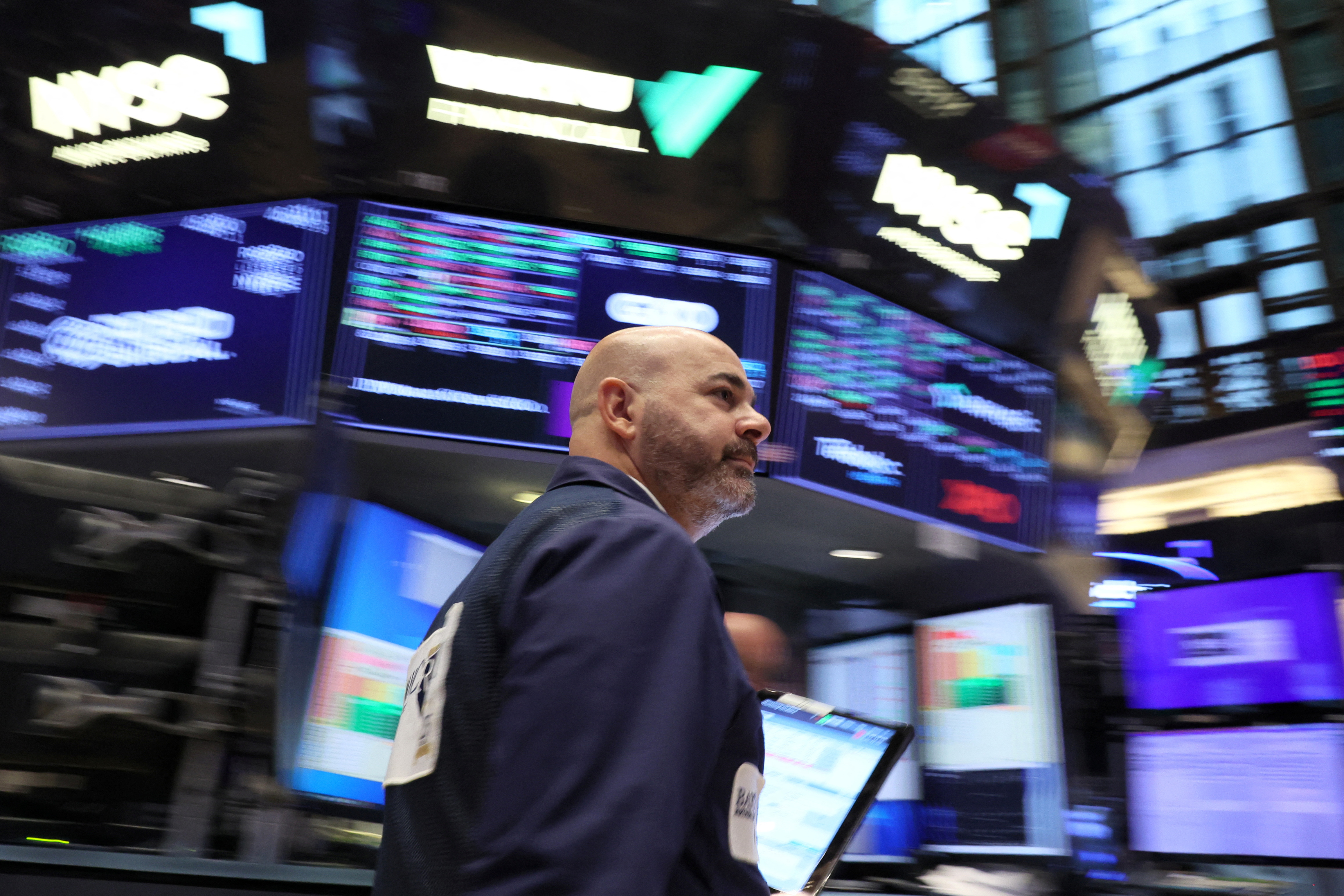
A trader works on the floor at the New York Stock Exchange (NYSE) in New York City, US, October 27, 2023. REUTERS/Brendan McDiarmid Obtaining licensing rights
NEW YORK (Reuters) – Financial markets are preparing for what could be a momentous week, with a Federal Reserve meeting, US employment data and earnings from technology heavyweight Apple likely setting the tone for stocks and bonds. The rest of the year.
October lived up to its reputation for volatility, as rising Treasury yields and geopolitical uncertainty weighed on stocks. The S&P 500 fell 3.5% during the month, adding to losses that left it more than 10% below its high in late July.
Whether the ride remains difficult for the rest of 2023 may depend largely on the bond market. The Fed’s “go longer” stance on interest rates and growing financial concerns in the US pushed the benchmark 10-year Treasury yield – which moves inversely with prices – to 5% earlier this month, the highest level in a year. 2007. Rising Treasury yields are seen as a headwind for stocks, in part because they compete with stocks for buyers.
Investors are concerned that yields could rise further if the Fed reinforces its hawkish message at the central bank’s monetary policy meeting on November 1. Strong US employment data next Friday could also be a catalyst for higher yields if it strengthens the case for keeping interest rates high to cool the economy and prevent inflation from rebounding.
“Stocks will start to recover when the market believes bond yields have peaked,” said Sam Stovall, chief investment strategist at CFRA Research.
Overall, futures markets are pricing in a near certainty that the Fed will not raise interest rates in November, and there is about an 80% chance the central bank will keep interest rates steady in December, according to CME’s FedWatch tool. However, policymakers expected that they would keep the key interest rate at current levels through most of 2024, a longer period than markets had previously expected.
Alex McGrath, chief investment officer at NorthEnd Private Wealth, said investors are playing a “waiting game about how much each economic data point needs to increase to put another rate hike on the table.”
With US GDP growing at 4.9% in the third quarter, signs that the labor market is still too hot, or that the Fed sees the need to further tighten inflation control, could lead to more volatility.
“We appear to be at a crossroads whether or not the strong growth we saw over the summer months will continue into the fourth quarter,” said Charlie Ripley, chief investment strategist at the Bank of England, which keeps concerns about inflation and restrictive monetary policy simmering. Allianz Investment Management.
Adding to bond market concerns, the Treasury Department is expected to announce the sizes of its upcoming auctions later this week. Concerns about the growing federal deficit and oversupply have helped push yields higher.
Investors are also awaiting Apple’s results on Thursday, during an earnings season with disappointments from some growth and technology giants, including Tesla and Google. The Nasdaq 100 technology index is down 11% from its high, although it is still up about 30% on the year.
Some investors believe the worst of the selloff may be over.
Stovall of CFRA Research said the stock market recovery will follow seasonal trends. Since 1945, the S&P 500 has advanced an average of 1.5% in November, making it the third best-performing month of the year, he said.
More broadly, some believe that trading patterns in the stock market this year point to a rebound in the fourth quarter.
In the 14 cases in which the S&P 500 rose at least 10% during July and then fell in August, as it has done this year, the index rose each time during the last four months of the year, according to Ned Davis Research. The average profit in those cases was 10%.
Randy Frederick, managing director of trading and derivatives at the Schwab Center for Financial Research, said stocks appear to be in “oversold” territory according to technical indicators and could rise if economic data comes in as expected.
“Stock market poised for late Q4 rally.”
David Randall reports. Editing by Ira Iosibashvili and Richard Chang
Our standards: Thomson Reuters Trust Principles.

“Beer aficionado. Gamer. Alcohol fanatic. Evil food trailblazer. Avid bacon maven.”
